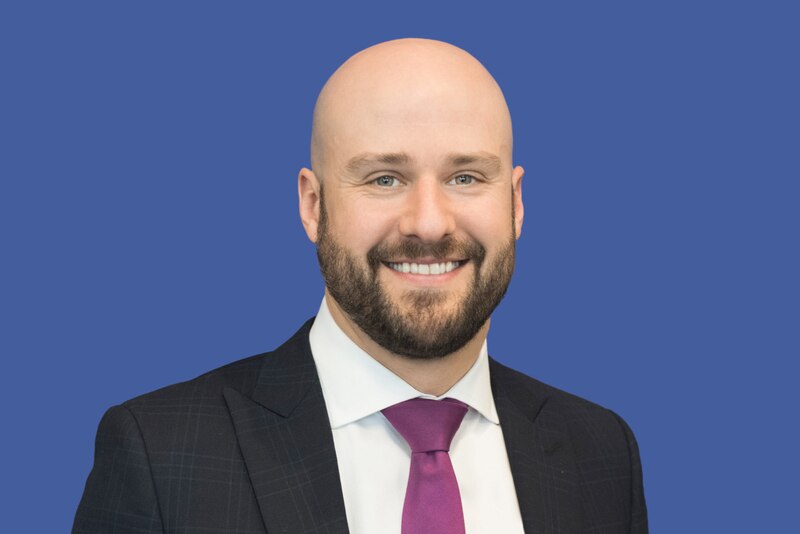One of Detroit’s largest education philanthropies is expanding its presence in the city’s schools, laying out plans to spend upwards of $85 million by 2025 to train educators, help successful schools expand, and open new ones.
A year after hiring its first executive director, the Detroit Children’s Fund, one of the only major funders in Detroit that focuses exclusively on education, laid out a strategy to increase the number of high-quality schools in the city.
Jack Elsey, executive director of the Fund, said it plans to spend between $85 and $100 million in coming years, putting it at the top of the list of education philanthropies in Detroit.
Over the last decade, a total of $260 million in philanthropic dollars have gone to Detroit education, according to the Foundation Center, a nonprofit that tracks charitable giving. The Skillman Foundation (a Chalkbeat funder), the largest single donor during that period, has given $67.3 million to educational causes since 2008.
Elsey said it will take years to fundamentally alter an education system that offers few quality options to the city’s roughly 100,000 school-age children.
“There is no silver bullet for addressing school quality in Detroit,” Elsey told reporters Tuesday morning, adding that the Fund’s goal is to “make Detroit the best place to raise a family within a generation.”
The Fund has gotten off to a quick start since Elsey’s arrival, spending $7 million in the last year on a wide range of projects, including a major grant to a high-performing charter school network, the formation of a city-led education commission, a campaign to attract teachers to Detroit, and a program that trains school principals and their top advisors to raise standards in their school.
The Children’s Fund receives much of its funding from Skillman, but it is supported by other big names in Detroit business and philanthropy, including the Ford Foundation, Quicken Loans, and General Motors, as well as individual donors.
“The magnitude is significant and important, but more important that the magnitude or volume of the dollars is how and where those dollars are focused,” said Punita Thurman, who leads education strategy at Skillman, adding, “The most important thing in changing academic outcomes for kids is the quality of the teacher. And nothing matters more to a great teacher than having a great leader.”
The announcement comes on the heels of a $50 million pledge from the Kresge Foundation to help open a new “cradle-to-college” school that will be run by Detroit’s main district. (Kresge also helps fund Chalkbeat.)
In recent years, Skillman spent millions to help parents navigate the city’s complex school landscape with school guides and a rating system. Though it still plans to fund a school grading system, the Children’s Fund will spend most its dollars to help the schools themselves improve, Elsey said.

When the school grades are published next fall, the Fund will use them to inform its decisions about which schools to fund — raising the stakes of the letter grades, which will also be used in state decisions about closing low-performing schools.
In the meantime, the Fund is backing schools based largely on test score improvements rather than overall scores, which are correlated with factors that are out of a school’s control, such as poverty.
It spent $5 million in its first year to fund expansions at Detroit Edison Public School Academy, New Paradigm College Prep, New Paradigm Loving Academy, and University Yes, citing growth on student test scores that outpaced the state average. At New Paradigm College Prep, for example, students’ scores improved 20 percent more than their peers at other Michigan schools.
The Fund will invest in both charter and traditional schools, though Elsey said it won’t fund charters that are run by for-profit companies.
Looking at test score growth, Elsey said about 10 percent of Detroit schools are “high quality,” meaning they are in the top 20 percent in the state.
“One in 10 is a travesty,” he said. The Fund hopes to increase the percentage of high quality schools to 33 percent by 2025.
Among the Fund’s plans for the next year: helping the Detroit district open new schools. It gave an innovative new school on the campus of Marygrove College several hundred thousand dollars to pay staff before it opens its doors next fall, and Elsey said he is in conversation with Superintendent Nikolai Vitti about opening one or two more schools by then.
“We’re in early conversations with the district,” Elsey said. “I think there are some early ideas out there to start new schools that have an opportunity to start on the right foot, that have great leadership, that have full teaching staff, that are attractive to parents.”

